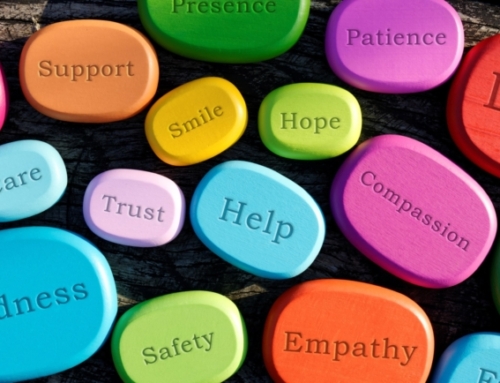Physicians are at high risk of burnout. Here are some of the aspects that place us at risk:
- The long periods of required concentration as we interact with patients can lead to mental fatigue.
- The emotionally laden and often tragic experiences our patients share with us can be emotionally draining.
- The long work hours many of us work can lead to physical exhaustion.
- Our patients’ frequently inadequate outcomes, lack of follow-through, or repeating the same problematic behaviors can lead us to feelings of inadequacy or futility.
- The feelings of not having control, of being trapped in schedules and by rules can be demoralizing.
- A higher and higher proportion of our time is spent on non-clinical activities, in particular, “paperwork.” The concept applies even when completing forms is no longer done on paper.
- Our expertise is no longer valued as highly both by administrators and our patients.
There are many things we cannot change. My focus today, however, is the things that you can change to regain (or maintain) a sense of control. I assert that experiencing a sense of control is empowering and protects against burnout. And conversely, a feeling of lack of control leads directly to burnout. Before I go on to explain, let me summarize the symptoms of burnout. I hope you are not experiencing an undue amount of these symptoms, but if you are, then it’s probably good to realize it now and take steps before the problem gets worse.
Symptoms of Burnout
- Loss of sense of accomplishment
- Emotional exhaustion and irritability
- Detachment
- Frustration with and even contempt for patients
Consequences of Burnout
- Higher rate of medical errors
- Loss of empathy towards patients
- High rate of quitting practice
- Family/marital problems
- Higher rates of substance abuse and other psychiatric disorders
Some Solutions
When confronted with a problem that you are motivated to resolve, it’s best to focus on the aspects of the problem that you can control. Many aspects of medical practice – such as work and insurance rules – may not be easy or even possible to change. So what is possible to change?
Let me answer indirectly. There is quite a shortage of physicians in many medical specialties across much of the country. That means it’s easy to move to a different part of the country, or just to a different practice in your city, and get a good position.
Take my friend, Venu, a psychiatrist I met back in 2004. One day he decided to leave Iowa and took his family to live in southern California, the place he and his wife desired to move to for many years. He is now there and has a thriving practice near Temecula, northeast of San Diego. It was a difficult choice for him, and he agonized about it for a couple of years. Also, when he arrived in California it took him a while to get his practice up and running. Now, however, he and his family are happy.
Also, I have a family friend who lives in my neighborhood. She’s an infectious disease specialist and for years she was complaining about how horrible her partners in the practice were to work with and how unfairly she felt treated. She finally quit. But unfortunately, she quit medicine entirely. Of course, the alternative I was advocating to her was to interview with other practices. Why not fire your partners rather than get so burnt out that you fire your career? What a shame!
So, my main message for you today is to realize your power to make the changes you need to get to a career you feel great about. You deserve it and –just as importantly – your patients deserve it too. Recall that studies show that physician burnout leads to an increase in medical errors. And note the story of my friend who left clinical practice entirely. She and the world would have been better off if she acted on her frustrations much earlier and made the positive career changes that would have allowed her to continue practicing medicine.
Another area of changing one’s practice to avoid burnout is to limit the kind of patients that you see in your practice. This must be done with sensitivity to ethical and other issues, of course, and I’ll discuss them in a future article.
Until next time,
Dr. Jack
LanguageBrief
“How well I know with what burning intensity you live. You have experienced many lives already, including several you have shared with me – full rich lives from birth to death, and you just have to have these rest periods in between.” – Anaïs Nin, Henry and June: From the Unexpurgated Diary of Anaïs Nin
“To be self-compassionate is not to be self-indulgent or self-centred. A major component of self-compassion is to be kind to yourself. Treat yourself with love, care, dignity and make your wellbeing a priority. With self-compassion, we still hold ourselves accountable professionally and personally, but there are no toxic emotions inflicted upon and towards ourselves.” – Christopher Dines, An Eight Week Course for Professionals







Leave A Comment